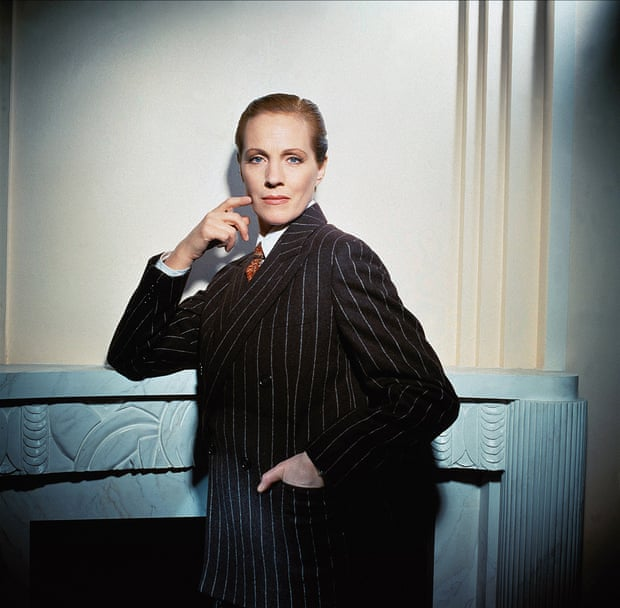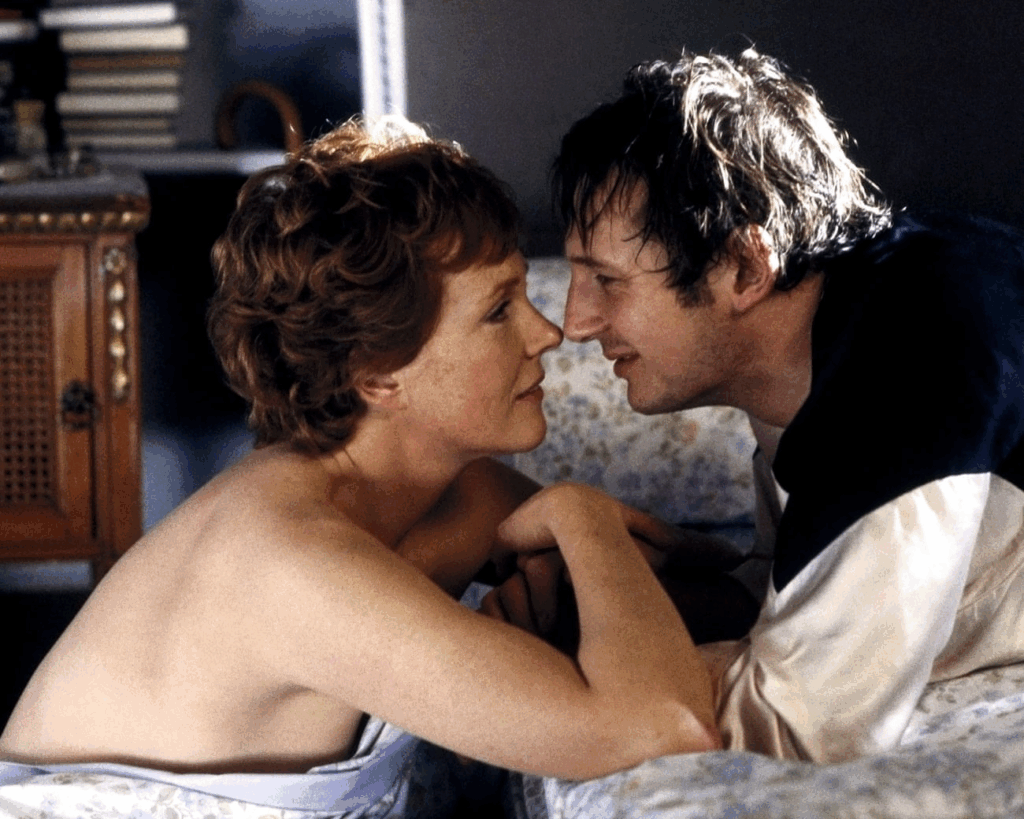Julie Andrews at 90: the enchanting nanny with a streak of sly wit, sensuality, and rebellion
Dame Julie Andrews, known for her crisp accent, pure melodies, and girlish charm in her most iconic musicals, has always been wryly aware of her angelic reputation. She won the 1965 Oscar as Walt Disney’s “practically perfect” English nanny, yet that didn’t stop her from cruising through Los Angeles with a bumper sticker that read: “Mary Poppins Was a Junkie.” She once told interviewers, “I hate the word wholesome,” and her Hollywood nickname became “the nun with the switchblade.” Now turning 90, Andrews remains one of cinema’s most adored figures, celebrated for possessing one of the most remarkable voices in film history. Her career spans sugary classics like Mary Poppins (1964), The Sound of Music (1965), and The Princess Diaries (2001), but also ventures into unexpectedly daring, dark, and unconventional territory.
Born in Surrey in 1935 and raised in London during the Blitz, Andrews began singing to neighbors while bombs fell. It was her stepfather’s lessons that revealed her extraordinary gift: by the age of eight she possessed an adult larynx and a crystalline soprano with an astounding four-octave range. She later joked, “dogs would come from miles away,” but her talent was indisputable—her voice unmatched in clarity and precision. She debuted in music halls, performed at the Royal Variety Show at 13, and soon became a fixture on the BBC. Broadway soon beckoned. As a teenager she starred in The Boy Friend and originated the role of Eliza Doolittle in My Fair Lady, dazzling audiences. Once she softened her Cockney accent for American ears, she became known not only for flawless diction but also for her ability to savor both lyrics and melody in every performance.

The oft-repeated story is that Jack Warner passed her over for the film version of My Fair Lady in favor of Audrey Hepburn, who required dubbing. Andrews cheekily thanked Warner when she won a Golden Globe for Mary Poppins, crediting him for freeing her to take the role. Soon after, her turn as Maria—the spirited novice nun—in the blockbuster The Sound of Music cemented her as a global star. Yet even before that, Andrews fought to resist typecasting, starring in the D-Day dramedy The Americanization of Emily (1964). With no singing, romantic scenes, and a memorable slap to James Garner, she proved her appetite for more daring roles, right in line with the risk-taking spirit of 1960s cinema—though with unmatched pitch and polish.
After collaborations with Alfred Hitchcock on Torn Curtain (1966) and a few musical missteps, Andrews shifted much of her focus to television in the 1970s. But with her second husband, filmmaker Blake Edwards, she stretched her range further. The Tamarind Seed (1974) was a romantic espionage tale, and 10 (1979) saw her paired with a rakish Dudley Moore in a sex comedy. The early 1980s brought her boldest reinventions: in S.O.B. (1981) she lampooned her own squeaky-clean image, and in Victor/Victoria (1982) she was dazzling—funny, seductive, and utterly convincing—in a gender-bending musical about a woman posing as a man. Unafraid of nudity and strikingly attractive in drag, Andrews embraced the challenge. The film was a smash hit and remains a beloved cult favorite.

Foreshadowing tragedy, two dramatic roles in the 1980s hit close to home. In That’s Life! (1986) she portrayed a singer awaiting a throat cancer diagnosis, while in Duet for One (1986) she played a violinist crippled by MS, who takes refuge in an affair with Liam Neeson’s character. With biting candor, she blurts to her therapist Max von Sydow, “I’m sleeping with a totter!” Then, in real life, her own voice was nearly silenced: botched throat surgery in 1997 damaged her vocal cords, ending her singing career on screen.
Unstoppable as ever, Andrews reinvented herself again in her 60s. Knighted as a Dame in 2000, she charmed a new generation as the regal grandmother in The Princess Diaries, a role that tapped her elegant comic delivery. She went on to delight younger audiences with her voice work in the Shrek and Despicable Me franchises.
For children of the 1960s, she was Mary and Maria; for grown-ups, she was the daring star of the Blake Edwards years. And today, she has won over Gen Z, lending her unmistakable voice as the sly narrator of Netflix’s Bridgerton, where Lady Whistledown’s sharp-tongued secrets are delivered with impeccable enunciation. Julie Andrews remains the most commanding voice in film—still as tender, and still as razor-sharp, as ever.


